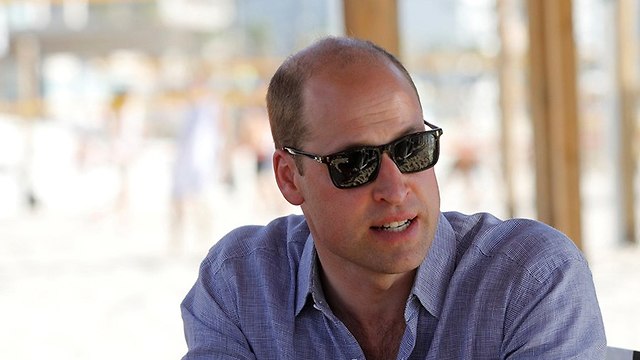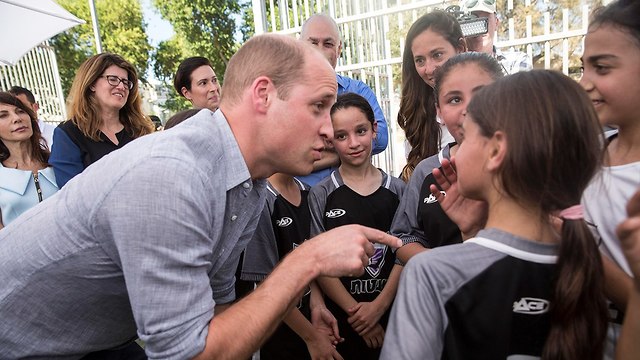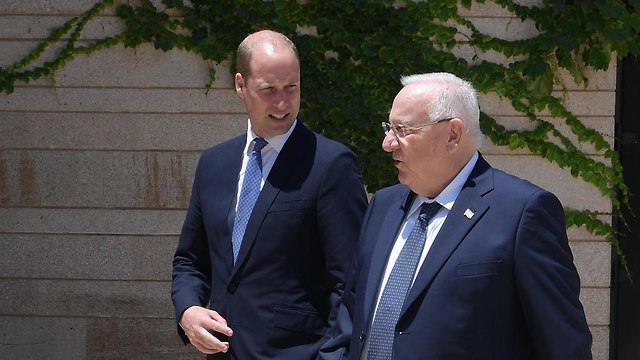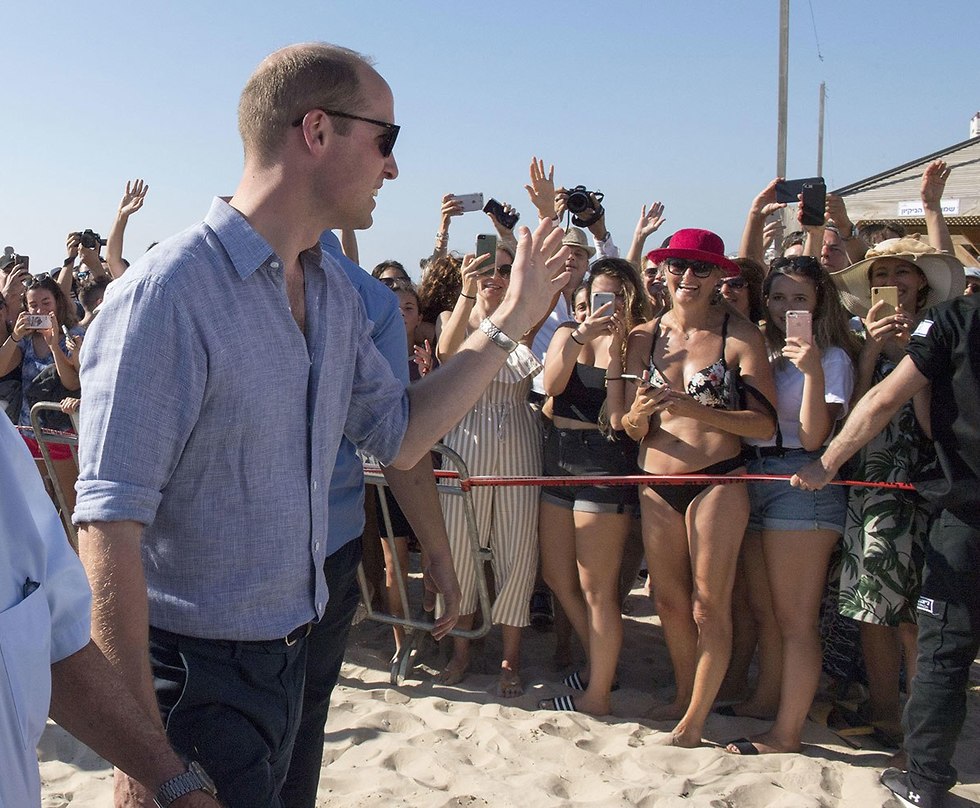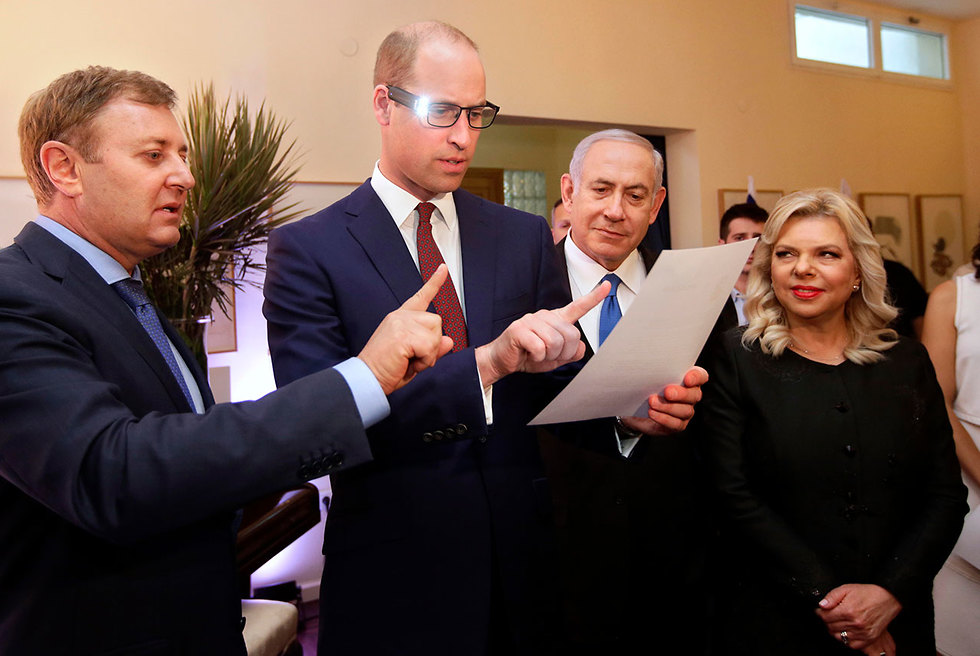
The British interest behind Prince William's Israel visit
Op-ed: As Britain searches for its place in the world following the decision to leave the EU, it uses 'soft power' tools, such as Prince William and the rest of the Royal family, to bolster ties with countries outside Europe, with the high-tech superpower Israel among them.
Prince William's visit to Israel is elegantly, royally late—by several decades. Finally, the regular group of naysayers at the British Foreign Office has been defeated, and courtesy of Prime Minister Theresa May's government, Israel is receiving an official visit from a member of the most well-known family in the world. This is an important gesture—even if it's a late one—to mark Israel's 70th Independence Day.
The Royal family itself cannot decide where to go on its official international visits, and so the Duke of Cambridge's visit is at its core a diplomatic decision made by the British government. And yet the Royal family underscores a principle that often disappears from our public discourse—soft power.
The term "soft power" was coined by researcher Joseph Nye, and its purpose is, in simple terms, to highlight a country's influence which is achieved not by force. Not by economic demands, sanctions, a military threat or a threat in general—but by its power of persuasion. In plain terms, soft power is the power of that kid at school that everyone wants to be friends with. The English language, the British Royal family, the imperialist tradition, the idea of the Commonwealth, British music like The Beatles—these are all part of the soft power Britain possesses. The UK is second only to France in the global ranking of soft power, and it strives to further nurture it.
And there is nothing that illustrates soft power better than the monarchy, whose purpose is symbolic, seemingly devoid of any authority, and seeking to avoid any type of political dispute.
In political terms, it's true: Prince William, like the rest of the family, is a chess piece used to achieve the strategic goals set by the British government. More practically, the House of Windsor holds enormous economic significance; Britain makes billions of pounds a year from the monarchy's brand and the fact it is a tourist attraction. If the British felt their monarchs weren't contributing to the country, in economic terms as well, they would've long turned into a republic.
But there is symbolic meaning here—by virtue of the continuity of the monarchy in the British Isles from the days of William the Conqueror. One of the biggest mistakes made by the elites in the West is the contempt toward symbols that create meaning and identity. In the era of globalization, the British monarchy is nevertheless more popular than ever; perhaps because people need anchors of tradition in a fast and changing world.
Prince William's visit to Israel also has an entirely practical aspect: Britain needs all of its possible allies now. The British public, unlike the political elite on the Left and Right, has decided to leave the European Union. This decision increases the rift between the British and the European mainland, a rift that has existed for many years.
The British feeling of isolation is further increasing because when turning to its great partner across the Atlantic Ocean, the United States, they encounter President Donald Trump. The British premier's relationship with Trump is worse, according to rumors, even than the relationship between German Chancellor Merkel and Trump.
Britain has abandoned Europe and faces an isolationist America, which is alienated of the UK's fundamental principles. In such a situation, Britain needs to bolster its relationships with faraway countries. Specifically in East Asia—the center of global prosperity—but Israel, with its flourishing high-tech industry, is also part of the new global economic map Britain desperately needs to connect to.
Its departure from the European Union is leaving Britain weakened, challenged and looking for its place in the world. In fact, it's also looking for the "united" in the United Kingdom—as Scotland is not too happy with the divorce from the EU, which has been forced upon it. In such a situation, Britain's diplomatic missions are more important than ever, and the Royal family is just another tool in the rather shrunken toolbox the British have in 2018.










